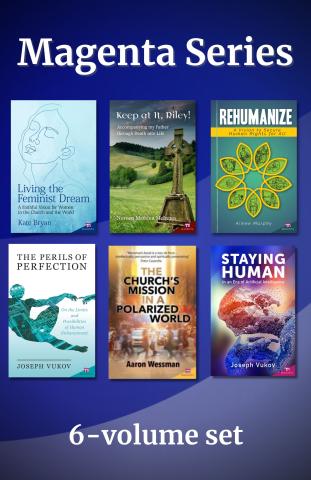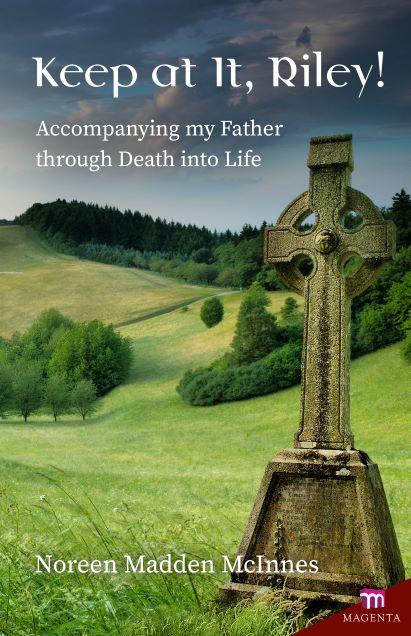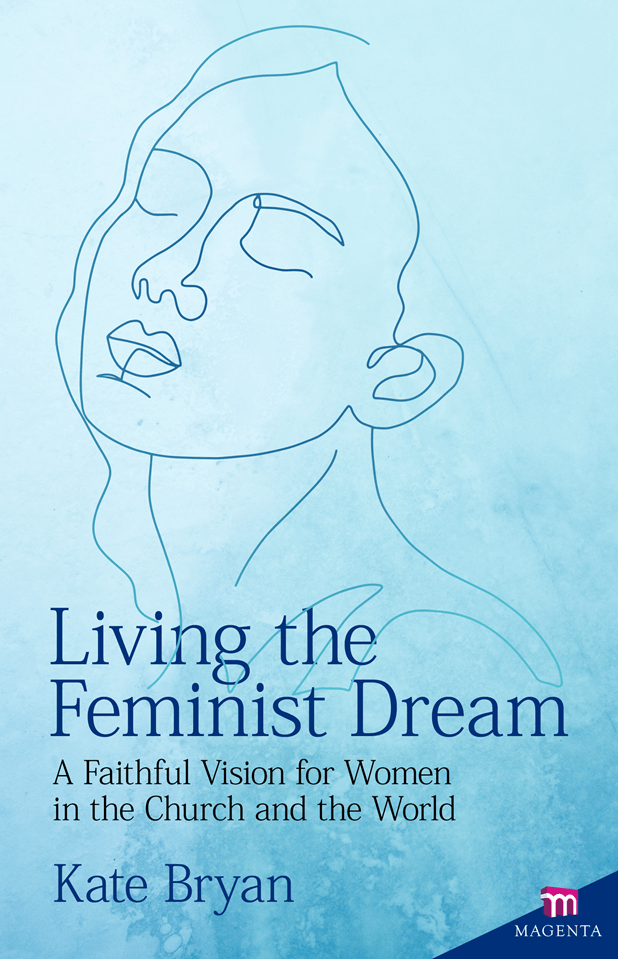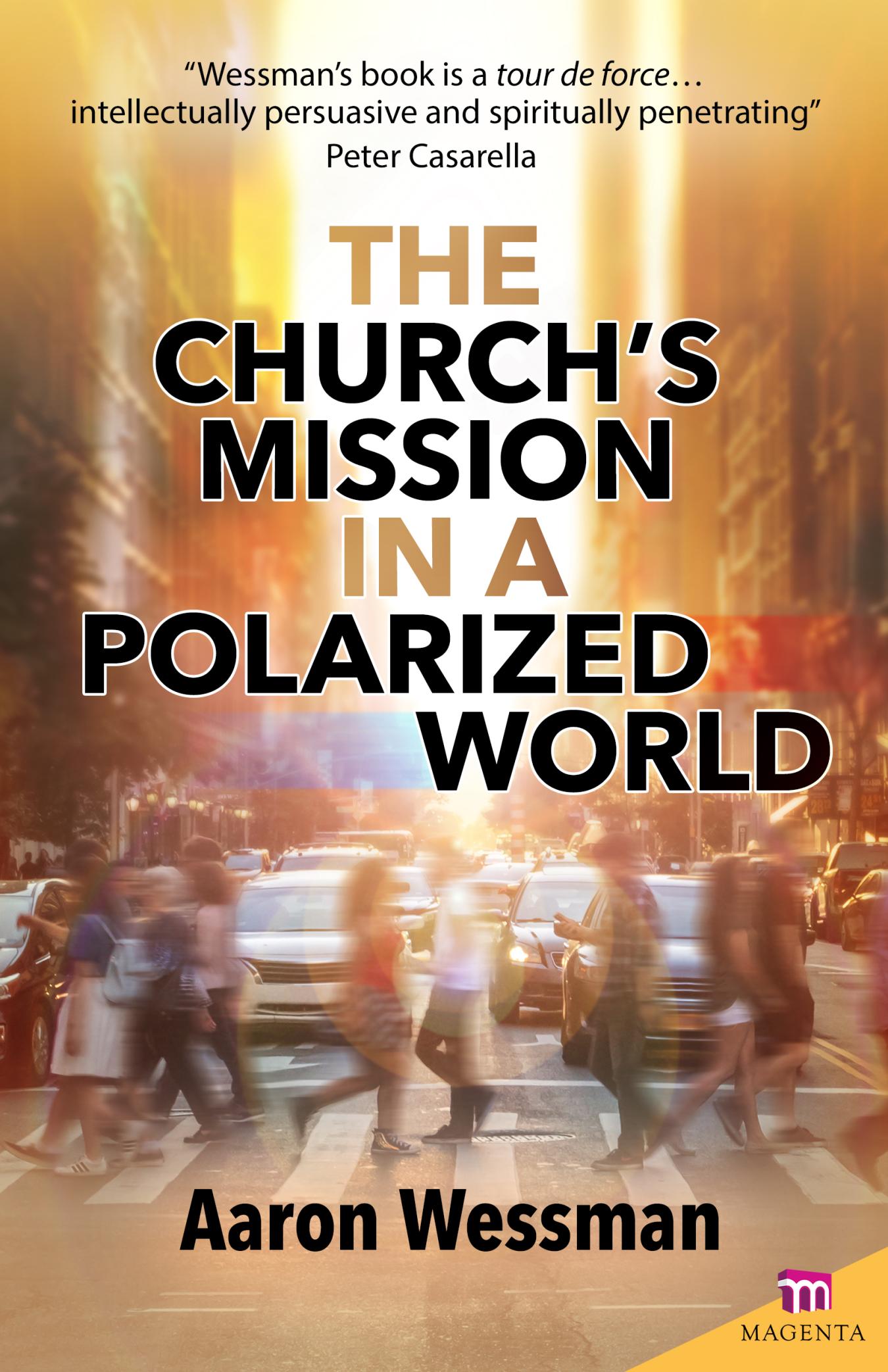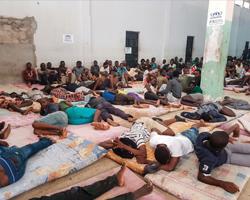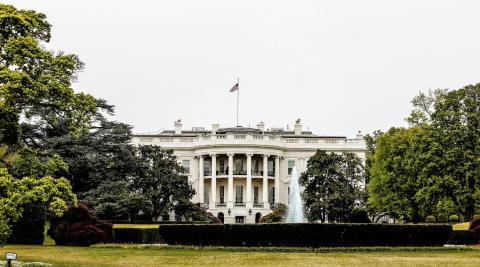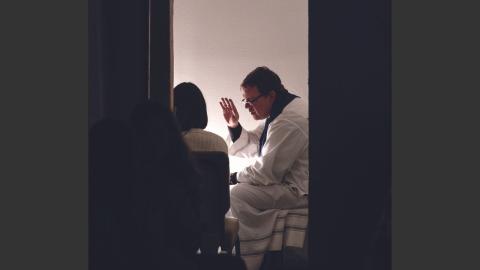The Church's Mission in a Polarized World
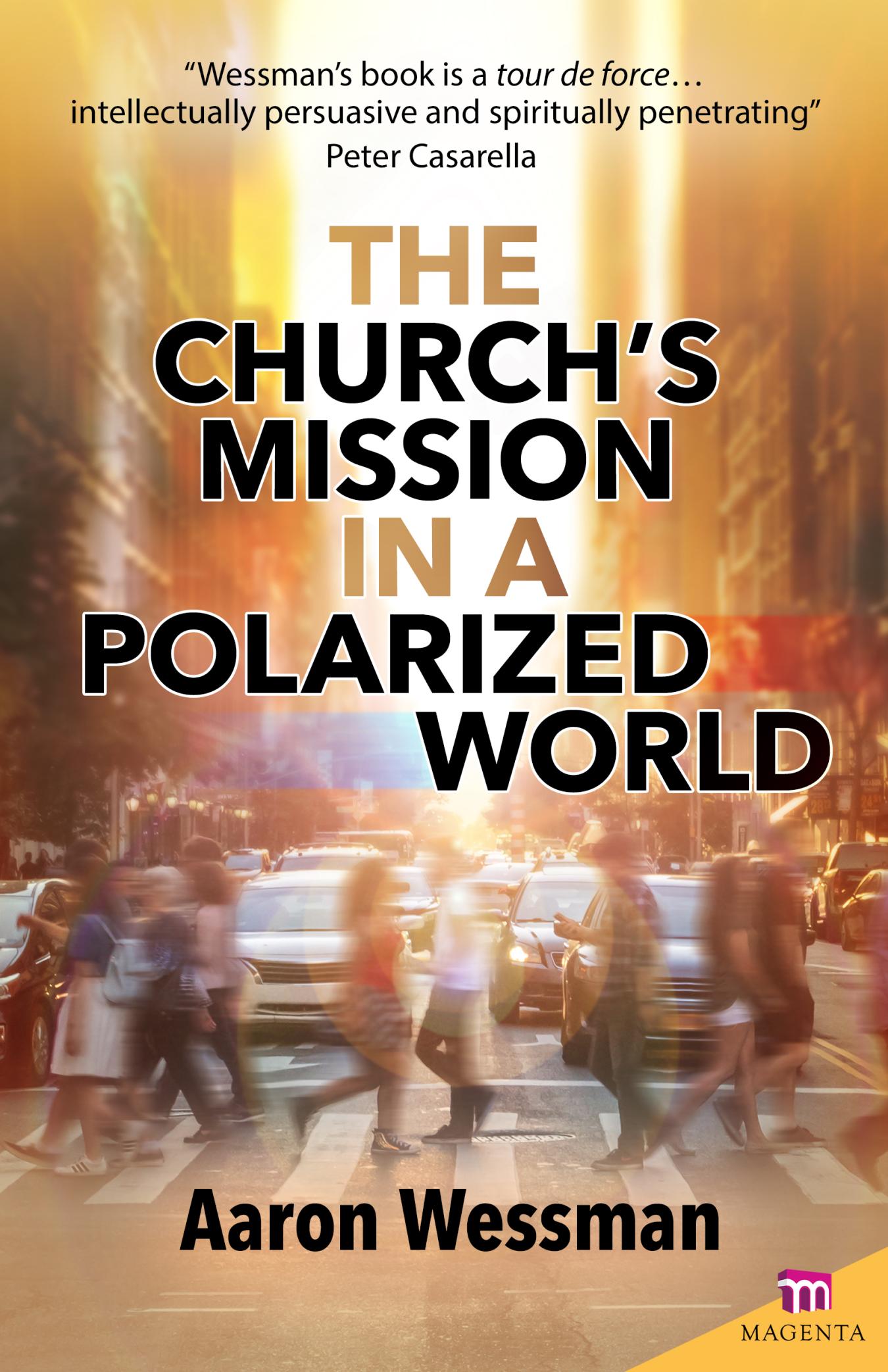
About the book
“Christians and other people of good will are longing for a response that can lead the way out of the divisiveness and vitriol of our times. I wrote this book to provide some assistance to readers to discern a way out of the toxicity in which we live, and to stimulate courage and hope, so that all people can see the age in which we live more clearly and respond with the grace necessary to follow more fully the call God has spoken—a missionary call to deepen Christ’s incarnational movement in our world.”
Endorsements
This book is a much-needed Catholic response to the increasingly perilous danger of polarization in politics, society, and even the Church. For those who are unfamiliar with the dynamics of polarization, here is a well-researched and soundly-reasoned work that will get you up to speed. For those who are already well-versed, here is a vivid presentation that will provide new perspective. For everyone, here is a bold and compelling call not to war, but into conformity with Christ's incarnational movement.
In this carefully researched and deeply personal examination of the polarization in American society and Church, Aaron Wessman provides a compelling way forward for Christians to disrupt the forces threatening our destruction. Drawing from sociological, psychological, and theological resources, he describes the intensification of polarization in the twenty-first century that demonizes the "other" as the enemy and stokes rage to gain political power. He insists that Christians must replace the metaphor of war, which aids polarization, with the defining Christian metaphor of Christ's emptying in the incarnation. Wessman's prescription goes beyond a theoretical assessment, however, highlighting practical tools available to Christians to "cross over" to encounter the other and giving examples of people and organizations now putting these principles into practice. Wessman has issued a powerful call for Christians to use the spiritual resources that define us to bring healing and hope.
Fr. Aaron Wessman’s book is a tour de force. At a time when both Church and world are vulnerable to the most divisive of rhetorical tactics, he has uncovered a path to unity that is intellectually persuasive, spiritually penetrating, ecclesially grounded, and eminently doable. In the United States, the metaphor of fighting a culture war has left its indelible mark on the Church and the world. It will not disappear soon. Wessman aims not to dismiss the warriors on both sides or the issues for which they are waging battle but to invite them to submit to a weapons buyback in return for a spiritual discipline grounded in the witnesses of holy men and women like St. Damien of Molokai, St. Thomas Aquinas, and Dorothy Day. Is this timely? I can think of few tasks that are more urgent.
Jesus was not just kind. He was also curious. In this hopeful and inspiring book, Fr. Wessman draws a clear connection between the Christian tradition of "crossing over" to encounter the "other" and the growing movement that tradition strengthens to bridge divides in our polarized world―even and especially when it scares us.
One of the clearest, deepest, most thoughtful and carefully researched interdisciplinary studies on polarization I have encountered. With deep respect for the power of language, Fr. Wessman's skillful use of vivid images and metaphors carry the reader into a new capacity to grapple with some of the most difficult tensions of our times. A storyteller at heart, his profound engagement with religious and cultural witnesses of dialogue, interspersed with honest and even vulnerable "show don't tell" personal examples encourage the reader to keep it real as one delves into the work needed to address divisive habits of thought and speech. This book would serve as an excellent and comprehensive text for college classes and for parish or community book clubs. His insightful interpretation of the ecclesial and cultural terrain not only generates more light than heat, but stands as a lighthouse for anyone looking for creative resources to both understand and meet this moment.
We live in an age of polarization, both politically and religiously, and it is tearing our nation and our churches apart. Aaron Wessman offers a calm voice in this dangerous storm. His advice is for us to trust one another, to be more resilient and flexible, to be more curious and open-minded, to be more prudent in what we say and how we say it. He offers us personal and institutional models that might help us bridge the dangerous chasms that we have created in our world. He offers us a spirituality, rooted in Jesus and his ministry, that can help us take steps in our lives that might actually bring about reconciliation and deeper community. It is not a spirituality of cheap grace, but the costly grace of the cross that might actually lead to a new life of resurrection.
What happened to my ability to listen charitably to differing opinions and thoughts? Where was kindness?” With searing humility that is surpassed only by his genuinely searching intellect, in this excellent book Fr. Aaron Wessman offers both insight and instruction. He shows people of faith how to understand, overcome, and even help heal the deep polarization that has unleashed a hurricane of destruction upon the relationships and communities of the western world, including the western Christian Church. His insights and instruction drawn from personal experience and diverse exemplars—both historical and contemporary— will inspire Christians who long to mend the social fabric that has been torn asunder.
Father Robert Aaron Wessman’s new text on the theme of polarization in our politics and in the Church could not be more timely. He has correctly identified polarization as a true problematic in its own right, with its own internal logic and sociological dynamic. Rather than treat the issue topically as an understandable set of responses to various “issues” he gets to the nub of the problem as a process of demonization and scapegoating that hardens ideological polarities into rigid categories that cut off further discourse. This is especially unfortunate in the Church, where charity and empathy should be evident in all of our ecclesial debates, but which has sadly degenerated of late into acrimony and hostility. However, Father Wessman is not content simply to diagnose the problem but also offers a prescriptive remedy, which is the remedy of all true reforms in the Church’s history. And that is the path of sanctity, the path of the saints, and the universal call to holiness. The text is hard-hitting, but sober in tone and content, thus evincing the very civility of discourse he so rightly champions. I cannot recommend this text more highly and urge one and all to take its message to heart.
In this well-crafted text, Aaron Wessman showcases the damage that polarization inflicts on both society and the church. Wessman draws effectively from sociology, social psychology, and popular culture to analyze polarization, but it is the gospel that fuels the book’s alternatives to separation and recrimination. The gospel’s call to conversion, which transcends politics and social tribalism, is the centerpiece of Wessman’s promotion of unity and reconciliation. The Church’s Mission in a Polarized World is a vision for a future seasoned with the hope and generosity integral to authentic faith.
Jesus proclaimed that he came not to bring peace, but a sword. His earthly ministry was marked by deeply polarizing conflict between himself and the Pharisees, whom he termed “whitewashed tombs.” Yet, he ate and drank with his own enemies and died for them. He loved them to the end, and he commanded us to love our enemies. In this extraordinary book Fr. Wessman asks us, in the midst of the sweeping conflicts of our time, to examine our conscience: have we become poisoned and paralyzed by hate? May we repent and learn to love!
It is rare in the world of theology today to find an author equally adept at both theory and practice. Fr. Wessman is just such a theologian. This book speaks eloquently the truth of our Christian faith, and to the world in which we live. It is a work of metanoia, conversion and so needed in our divided age.
Deeply knowledgeable and sincerely concerned, Fr. Aaron Wessman offers unique and thought-provoking insights on political polarization from the perspective of the pew. Wessman seamlessly weaves together academic and biblical sources to ask tough questions and demand honest answers about the Church’s role in a polarized world. This book reminds us that good shepherds will rise again and shows us the path to get there.
For good reason, many people bemoan the polarization and lack of civility in American life and politics, often with a sense of despair or resignation. What can be done, anyway? Someone else should solve the problem. In this timely book, Fr. Wessman reminds us of our apostolic vocation to cross over and encounter other people, as Christ did. Faith sees with the eyes of love, and seeks the good of the other rather than their defeat. More than an inspiring call, however, Fr. Wessman explains the skills and virtues needed, and how to take those first small steps to become people of hope, courage, and hospitality.
The divisiveness of US politics has been the topic of countless opinion columns, but Robert Aaron Wessman expertly provides history and context to help Christians and all Americans find a way out of the storm. Both incisive and hopeful, The Church’s Mission in a Polarized World offers practical principles from the teachings of Jesus (and examples of people who put those principles to use) to restore our civic life.
This is a very significant and timely publication. It offers a detailed and sobering analysis of the emergence of polarization in both political and ecclesial life. More importantly, it offers believers a reason to hope by challenging them, and showing them how to be people “who can cross over”—to be disciples who follow the example of Jesus in seeking dialogue and true encounter with all our brothers and sisters.
Fr. Aaron Wessman has provided a much-needed exploration of how the Church can—indeed, must—respond to the toxic polarization that has strained communities, severed relationships, and derailed collaboration. He persuasively shows how a ministry of “crossing over into the storm” has a much more authentic grounding in the Gospel than the war imagery often invoked to motivate American Christians to action. This book is an important attempt to reset the conversation.
Polarization is not enmity. Many will consider it as division but— in the proper context— it might be more precisely a distinction, even in extreme form. We know that these distinctions must be part of a complex system that allows new realities to emerge. Polarization— as we are experiencing it today in the USA—can (and should) be addressed constructively to avoid the breakdown of our systems. As Bernard Lonergan pointed out, we can indeed be attentive, intelligent, reasonable and responsible. We can encourage one another in the effort to understand even the worst enemy so that we can strengthen our systems and ourselves. Polarization is not a reality to which we necessarily have to succumb. We can effectively navigate and respond to it. Fr. Aaron Wessman’s work reminds us, in the words of Saint Pope John XXIII, to ¨seek what unites, not what divides.


